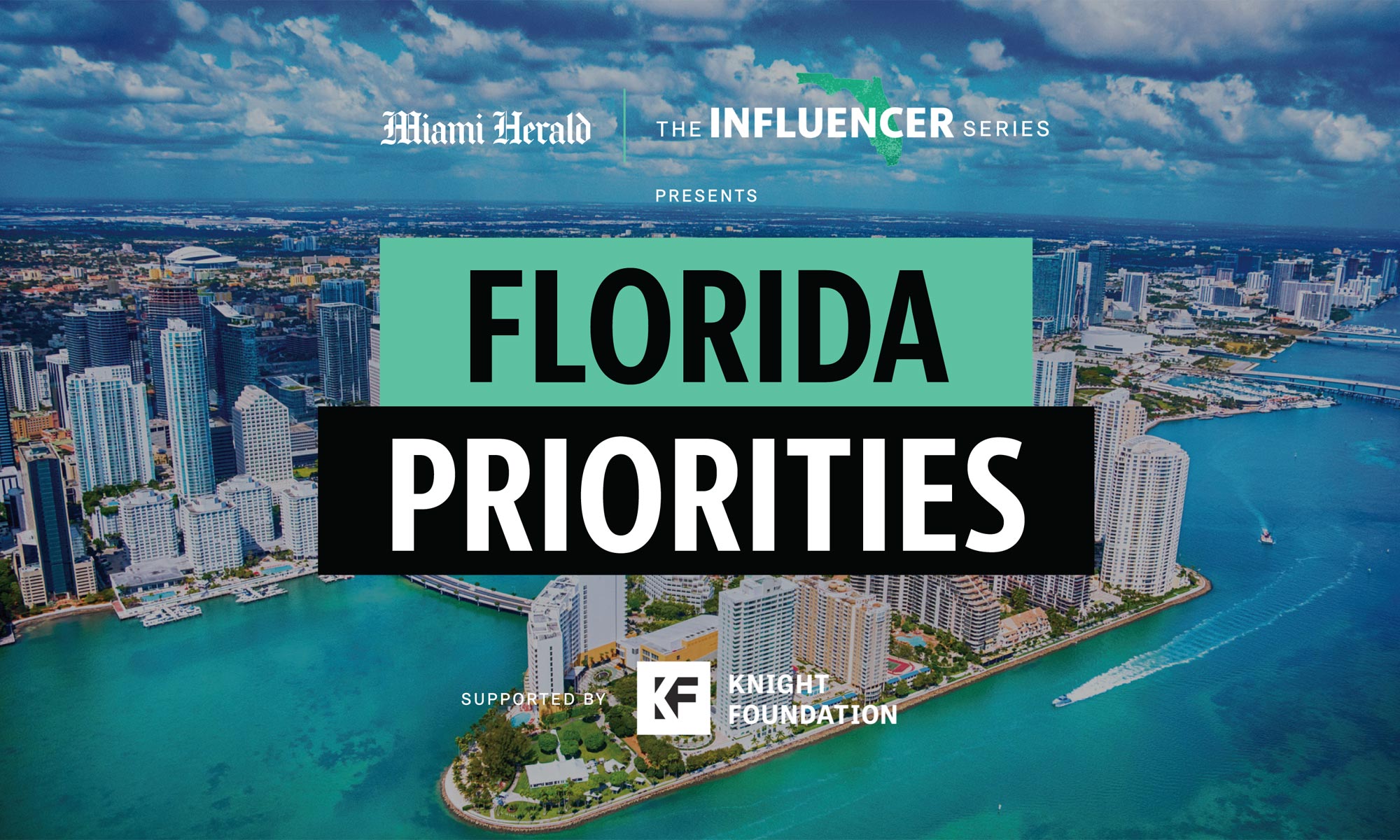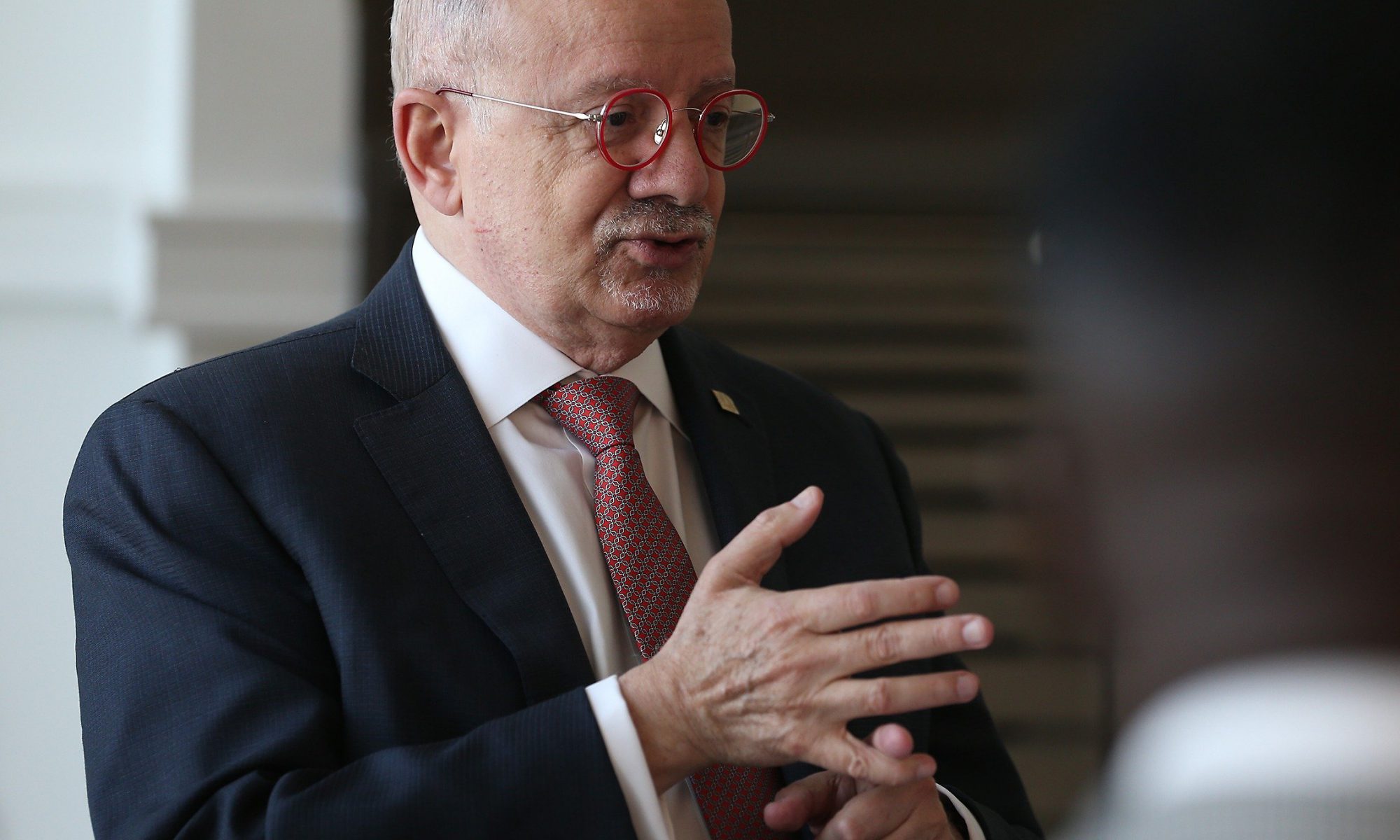By Christian Ortega
The Reporter—Miami Dade College
The future of our country depends on a well-rounded education. But
as tuition costs and national debt increase, there has never been a more important time to find cost-effective ways to provide the next generation of Americans the tools they need to succeed.
That was one a primary takeaway at the first day of the Florida Priorities Summit, a Miami Herald effort to identify the key issues affecting the state.
A panel of education experts — —including Miami Dade College President Eduardo J. Padrón, American Federation of Teachers Vice President Fedrick Ingram, eMerge Americas CEO Felice Gorordo and United Way of Miami-Dade CEO Maria Alonso—discussed how to further improve the system our state has in place.
The Influencers also discussed the challenges of balancing the needs of public education with the growth of charter schools.
“Florida has seen education as an expense, rather than an investment,” Padrón said.
As Florida has increased funds to the Bright Futures Foundation, Padrón fears that there will be a limit to the number of students relying on financial aid to cover their tuition. That’s because Bright Futures is dispersed based on high school grades, and financial aid is determined by student need.
“The system is designed in a way that excludes many underrepresented populations,” Padron said. “Our state, and our nation, simply cannot afford to lose talented and dedicated students because it’s too expensive to go to college.”
Lawyer Stephen Zach, another member of the education discussion group, said “I have friends of mine who are very wealthy who did not have to pay for their children’s college education….I would ask them how they feel about it and their response was simply, ‘That’s how the system is.’”’
Because Bright Futures is measured by grade point average, it does not take into account extenuating circumstances a student may have that can impede them from attaining the grades required to qualify for the scholarship.
Their solution revolved around finding ways to ensure that ]scholarships are awarded to those who meet the gpa requirements and simultaneously require financial assistance.
The issue of teacher wages was of importance to the Influencers as well.
In last week’s midterm elections, Miami-Dade voters agreed to a special tax in order to pay teachers more and hire enough officers to protect each school. By July 2019 the county is expected to collect $232 million.

